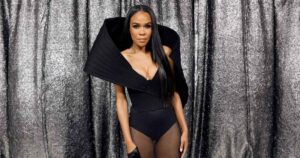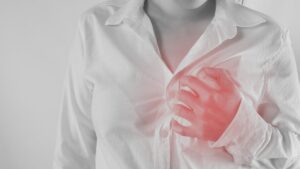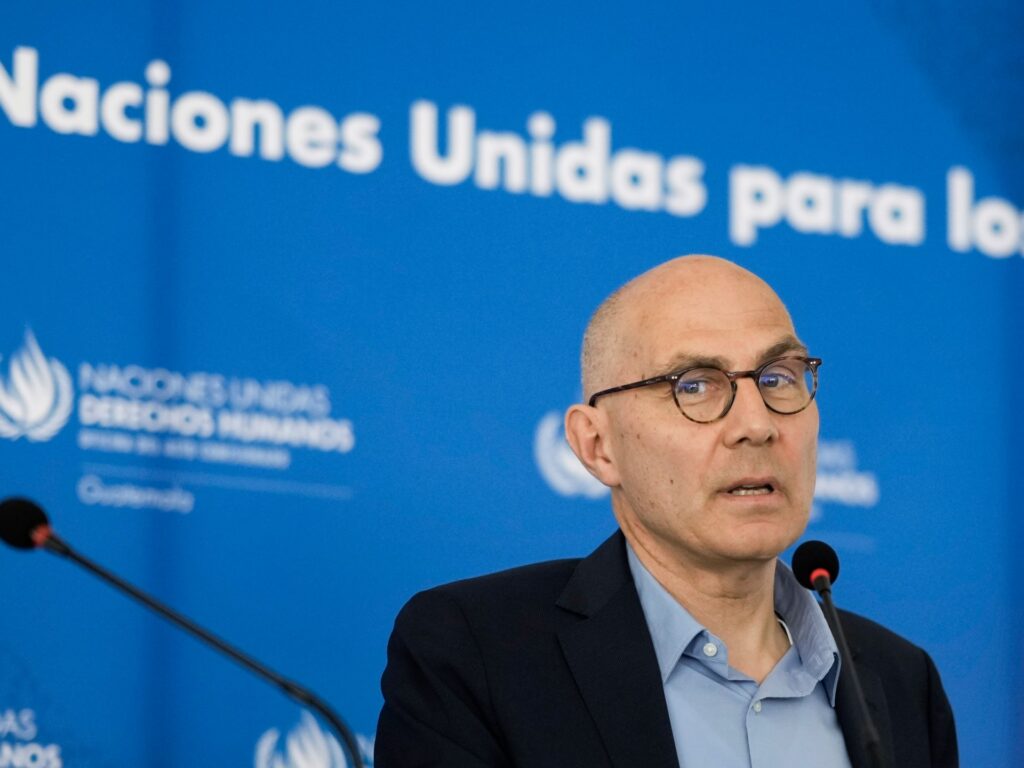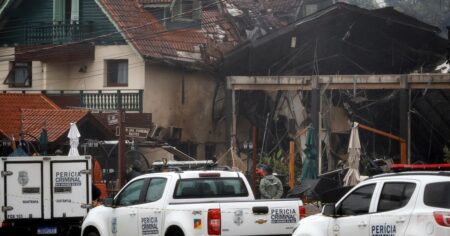The United Nations High Commissioner for Human Rights has announced that his office is starting to resume its activities in Venezuela, despite past clashes with the government of President Nicolas Maduro.
High Commissioner Volker Turk made the announcement on Friday at a meeting with the UN Human Rights Council, where he reiterated his concerns about conditions in Venezuela, particularly after its most recent presidential race.
“My office has begun to resume its operations in the country in recent weeks. My hope is that we will be able to restore our full presence,” Turk said in his opening remarks, pitching his organisation as a “bridge-builder”.
The UN human rights office had previously established a presence in the country in 2019.
But that changed in February, when Maduro’s administration accused the office of plotting with opposition members to undermine the government — an allegation made without proof.
Its local office was ordered to close immediately, and its members were told to leave the country within 72 hours.
In a statement at the time, Venezuelan Foreign Affairs Minister Yvan Gil Pinto accused the UN human rights office of becoming a “colonialist” and “improper” presence in the country, stirring up unrest.
“Far from showing it as an impartial entity”, Gil Pinto said the office’s actions have “led it to become the private law firm of coup plotters and terrorist groups that permanently conspire against the country”.
The Maduro government, however, has long faced condemnation for its human rights record, which includes allegations of arbitrary arrests, torture and extrajudicial killings.
Shortly before the human rights office in Venezuela was ordered to be closed, UN officials had expressed concern about the sudden detention of human rights lawyer Rocio San Miguel.
In a social media post about her arrest, the human rights office wrote that “due process guarantees, including right to defence, must be respected”.
The shuttering of the local office also coincided with intensifying scrutiny over the fairness of Venezuela’s latest presidential election. Maduro, at the time, was seeking a third term in office, but public opinion polls in the months leading up to the race heavily favoured the opposition.
The government disqualified several popular opposition candidates from running, including opposition leader Maria Corina Machado and her subsequent replacement, Professor Corina Yoris. Ultimately, Edmundo Gonzalez, a former diplomat, was picked to lead the opposition ticket.
The election was held on July 28. But in the early hours of July 29, shortly after polling stations closed, Venezuela’s electoral authority announced that Maduro had won — though it did not release the paper voting tallies that traditionally accompany the results.
Critics immediately slammed the announcement as fraudulent and called for transparency in the voting results.
The contested election led to protests in the streets of the capital Caracas and other cities, as the opposition published voting documents online that it said proved Maduro’s defeat.
An estimated 2,000 people were arrested in the government crackdown that followed, with dozens killed and hundreds injured. In his statement at the UN council on Friday, Turk underscored the human toll of the violence.
“Looking back over recent months, I remain deeply concerned by the disproportionate use of force and violence during post-electoral protests in July and August, including by armed individuals supporting the government,” Turk said.
“I urge a prompt and effective investigation into at least 28 killings that reportedly included demonstrators, bystanders and members of the armed forces.”
Still, in a gesture to the country’s authorities, Turk applauded recent waves of prisoner releases that freed protesters and opposition members detained during the post-election protests.
An estimated 225 political prisoners were released under “precautionary measures” — including mandatory court appearances — on November 26, and another 103 were set free on Thursday.
“This is an important step,” Turk said. But he nevertheless urged Venezuelan officials to review all the cases of those still detained.
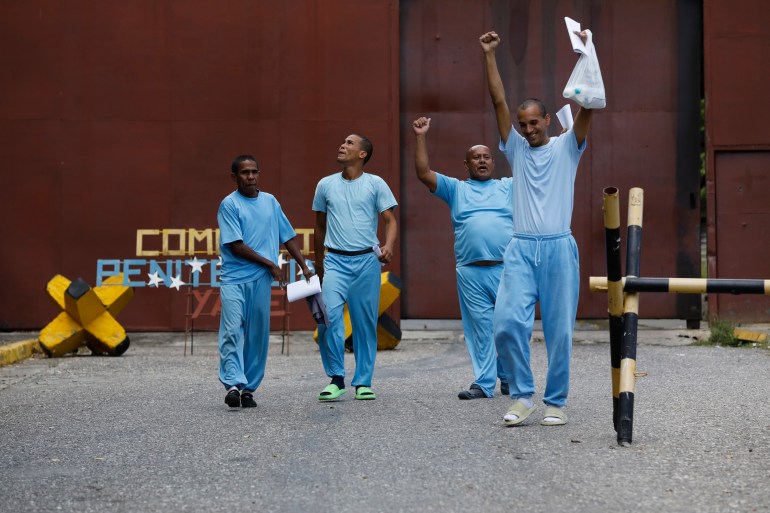
“I urge the release of all those arbitrarily detained, both before and after the presidential election. This includes human rights defenders such as Rocio San Miguel and Javier Tarazona, as well as humanitarian workers,” he said.
“The continued use of counterterrorism legislation against protesters, including adolescents, and reports of enforced disappearances and ill treatment are deeply troubling.”
As part of that alleged ill treatment, Turk indicated detainees struggle with “overcrowded cells” and inadequate supplies of food, water and healthcare.
He also called on the Venezuelan government to allow each of the prisoners a fair trial, including access to a lawyer and translators if needed, particularly for Indigenous detainees.
Looking ahead to Maduro’s inauguration in January and National Assembly elections later in 2025, Turk reflected on his previous visits to Venezuela. He cast his office’s role in the country as one of cooperation.
“It was clear to me then, as it is now, that the society needs to heal; overcome divisions and polarisation; and engage in an inclusive dialogue as an absolute priority,” Turk said.
“We stand ready to support the people of the Bolivarian Republic of Venezuela during these difficult times in a spirit of constructive engagement.”
Read the full article here


